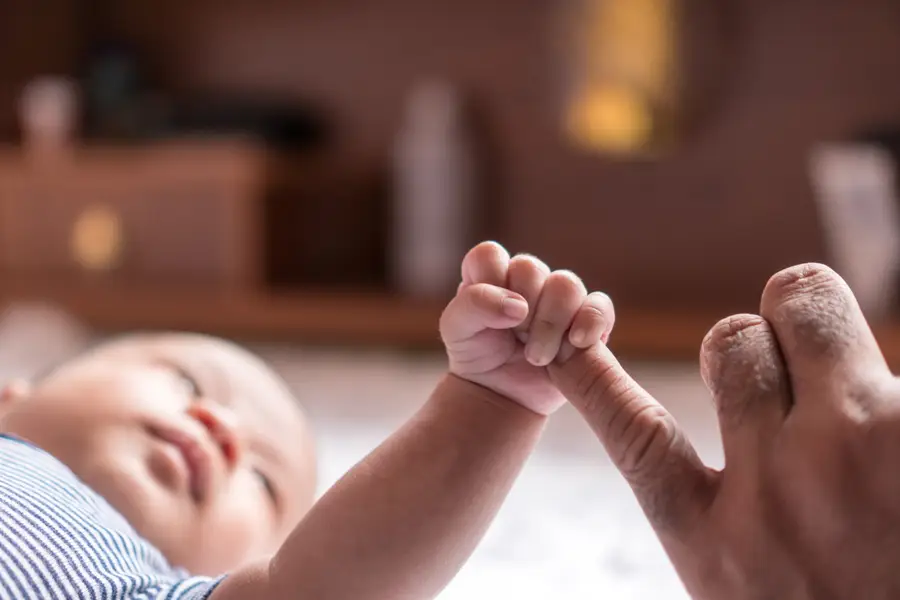
First, some background: I work in early childhood development (ECD)—a field focused on helping young children thrive through interventions in education, health, nutrition, and caregiving. I also recently became a new parent. The reality of life with a newborn has crashed into my understanding of ECD “best practices” like a missile striking a hot air balloon. The experience has left me wondering if ECD interventions are sufficiently practical, respectful, and flexible for the lived experiences of caregivers and children around the world.
Reality meets best practice in early childhood development
My reevaluation started with the birth itself. Despite websites encouraging me to “achieve the childbirth experience of my dreams,” knowing how many women and children die in childbirth made me circumspect. My birth plan was decidedly less ambitious: for both of us to survive the event. And though I knew intellectually what would happen, nothing could have prepared me for the complete shock of the experience. I would have been less surprised if a stork had alighted on the windowsill and passed my daughter to me in a blanket.
Coming home from the hospital in a daze, I thought I was sufficiently knowledgeable about infant feeding practices. But I was completely unprepared for how difficult breastfeeding would be. When my daughter’s weight plummeted in the early weeks, the pediatrician insisted we supplement breastfeeding with formula. As I gave my daughter formula for the first time, I mentally ticked “no” in response to a questionnaire from a longitudinal study I had co-designed in Cambodia: “Was [NAME] exclusively breastfed for the first six months?”
Now each additional month of breastfeeding feels like a victory. Will I manage to continue until “age two and beyond,” as recommended by the World Health Organization? Probably not. And I have to wonder: is that a realistic expectation for most working women in the world? Considering how few women have paid family leave from work, the logistical barriers alone are enormous.
What families actually do
Then there are the disconnects around sleeping. The “back is best” guidance—that babies should sleep alone, in their cribs, on their backs—is evidence based. A national awareness campaign in the 1990s contributed to a steep decline in sudden infant death syndrome in the United States. And yet there is no denying that separating mother from baby makes it harder to breastfeed, and babies prefer to be held. There is comfort and bonding in the warmth, smell, and sensation of physical closeness. These considerations—and pure exhaustion—make it likely that some portion of families give up on following the guidance and resort to compromises (while being afraid to confess to their pediatricians).
In some non-Western cultures, the idea of leaving babies to sleep alone is shocking and making them sleep on their backs unnatural. When my friend was struggling to get her infant son to sleep on his back, her Nigerian mother-in-law, who had raised a large family herself and helped in raising dozens of grandchildren, intervened. This baby needs to sleep on his stomach, she insisted, and my friend relented. It worked; my friend’s son slept much better on his stomach, but she worried about the risk she was taking.
The evidence on sleep safety practices is resounding, and adhering to the guidelines reduces the risk of outcomes that are catastrophic, but extremely rare. As with so many aspects of parenthood and caregiving, there is a yawning gap between the evidence-based guidelines and what families do. As an ECD researcher and practitioner, I have to wonder if we’re asking why—and listening to caregivers’ answers.
Are we listening to caregivers?
To say that becoming a parent is humbling doesn’t begin to convey the disorientation of feeling absurdly incompetent at something that I deeply wanted to go well. With uncertainty about every feeding and sleeping decision, I was flooded by self-doubt: am I doing this right? Then it dawned on me: I am the perfect candidate for a parenting group! I considered the typical model of weekly or biweekly parenting group sessions offered in global ECD interventions. Would I have the time and energy to go to a parenting group session like that?
In the first six months, I barely had the time and energy to change my clothes. And unlike the majority of mothers in the world, I am fortunate to have structural systems of support in place: access to health care, paid family leave, and stable income. David Evans and co-authors have written compellingly about how research fails to adequately measure the impact of ECD interventions on women’s time (including the opportunity cost of their labor), and their physical and mental health. Are parenting group sessions the best model for supporting parents? And are we asking them this question?
The role of culture in raising children
Prior to the birth of my daughter, I had big plans for how productive I would be while on parental leave (ha!). But during those long hours awake in the middle of the night, I managed to do one thing on my list: I finally read The Anthropology of Childhood. This book was a wake-up call about the huge cultural variation in norms and values about childhood and childrearing around the world. Have we really grappled with what cultural variation means for trying to support positive outcomes for children?
Although guidance documents pay lip service to contextualization, the reality sometimes falls short: donors design programs with little input from government partners (let alone caregivers); technical advisors steer adaptation workshops toward preordained outcomes; the people we invite to the table for consultation are those who already agree with us.
The desire to improve child well-being at scale impels us to pursue uniform approaches; that is, the one package that can be used everywhere to good effect. International organizations promote “signature programs”—helped along by catchy names and sleek marketing—that apply universal guidance in broadly diverse contexts.
Recently, anthropologists have written scathing critiques of global ECD, and some of the intellectual leaders of the field have responded. The critiques get a lot wrong, particularly when it comes to how ECD programs actually work in practice, but a thread of their argument is sound: that global ECD researchers and practitioners need to take seriously differences in culture and the implications of those differences. In the article Africa is Not a Museum, Ann Weber and coauthors outline a way forward that builds with integrity upon local beliefs and customs to facilitate the change that communities desire for their children. Dana McCoy has suggested a model of developmental universality with cultural specificity that seems particularly promising.
A more nuanced approach to early childhood development programming
The clash between official guidelines and “best practices” on one hand, and my lived experience as a parent on the other, has caused me to reevaluate much of the work we do in global ECD. We need more humility, more respect for caregivers, and more sensitivity to cultural variation and diverse ways of knowing.
The huge advances in global ECD in the past two decades have been led with skill and dedication by pediatricians, developmental psychologists, economists, and neuroscientists. Our success in the next two decades might depend on what we can learn from qualitative data, such as ethnographies about parents and caregiving, to close the gap between official guidelines and reality.
In my work with the Center for Thriving Children, I’ll be trying to bring some of that perspective and to create an intellectually safe space for reflecting critically and challenging ourselves to do better.

